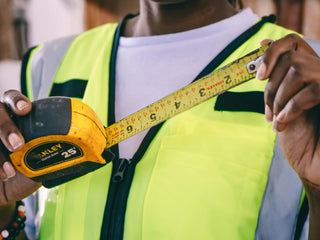As the long nights draw in, and the weather turns colder, cuffing season is about to enter full swing. This is a time of year when people naturally crave closeness, whether that means settling into a long-term relationship, or enjoying something more short-term but comforting.
Along with the cosy vibes comes a pretty big question: when is the right time to stop using condoms?
It’s tempting to see ditching condoms as a milestone in your relationship, and, for some, it feels like proof of trust or a statement that things are serious. But removing condoms too quickly carries both emotional and physical risks, so how do you know if you and your partner are truly ready?
Our resident sex and relationship coach, Gemma Nice, has worked with countless couples at this exact stage. She shares what people often get wrong, and the seven red flags that mean you are not ready to give up condoms just yet.
What people get wrong about ditching condoms
Before we deal with red flags, let’s look at the biggest misconceptions people have at this stage of a relationship. Many couples underestimate what condoms are actually for, or convince themselves they are no longer needed once things feel serious. Gemma explains the most common myths she sees in her work.
Myth 1: Exclusivity equals safety
It’s easy to assume that, once you are only sleeping with each other, you no longer need condoms. But exclusivity is not always clear-cut. “People think that once you are spending a lot of time together or sleeping only with each other, it means you’re safe. Exclusivity is not something to assume, however, it needs to be talked about and agreed on, otherwise you’re just guessing,” says Gemma.
Myth 2: Trust replaces testing
Trust is essential in relationships, but it’s not the same as proof. Your partner might say they were tested but, unless you have seen the results, you are basing your decision on words alone. “Even if you trust them deeply, there could be things they don’t know, or have not thought to mention. Going for a test together makes it much clearer.”
Myth 3: Other contraceptives work instantly
Contraception is another area where couples cut corners. “People rush to remove condoms as soon as they switch to another form of contraception,” Gemma explains. “Hormonal contraception takes time to start working. If you stop using condoms before it has kicked in, you leave yourself open to risk.”
Myth 4: The pull-out method is enough
Some couples ditch condoms, and rely on withdrawal instead. “The withdrawal method is not reliable,” Gemma says. “Pre-ejaculate can contain sperm, and it only takes one sperm to cause a pregnancy. I cannot tell you how many clients come to me thinking this is safe, only to be shocked when it is not.”
Myth 5: Condoms ruin the mood
And, of course, the classic excuse: condoms kill spontaneity. “People convince themselves that condoms stop sex feeling natural or spontaneous. But what really ruins the mood is an STI scare, or an unplanned pregnancy. Condoms can actually make sex more enjoyable because they take away that anxiety.”
7 red flags that suggest you’re not ready to stop using condoms yet
So, what does “not ready” actually look like in real life? Gemma often sees situations such as the following, where couples decide to ditch condoms too soon; and if any of these apply to you, it is safer to keep condoms in the picture until you and your partner are on the same page.
1. You have not both had an STI test and shared the results
If you’ve never both been tested and shown each other the results, you are making decisions in the dark. “If neither of you has been tested recently, you cannot say for sure what you are bringing into the bedroom,” says Gemma. “Even if one of you has been tested, not sharing results can signal a lack of openness. Testing together can be a really positive step. It shows you both care about the relationship, and it can actually strengthen your bond.”
2. You are unclear on exclusivity
If you don’t know whether your relationship is closed, it’s not safe to stop using condoms. “Sometimes people are vague because they have been hurt in the past or they are afraid of commitment,” Gemma explains. “Other times, they are simply keeping their options open. Either way, if you’re not clear on exclusivity, you cannot make safe choices about stopping condoms.”
3. You have never had an honest contraception chat
Contraception is a shared responsibility, and avoiding the topic is a sign that communication needs work. “If you’re not able to sit down and talk about contraception honestly, you’re not ready to stop using condoms,” Gemma says. “Contraception should never be left unsaid or assumed. When you talk it through, you reduce misunderstandings, and create a stronger, more trusting connection.”
4. One partner feels pressured to stop
Consent and comfort are non-negotiable. “Stopping condoms has to be a mutual decision,” says Gemma. “If one of you feels pressured, that’s a sign of disrespect and a lack of proper boundaries. Sometimes this pressure comes from wanting sex to feel different, and sometimes it is about trying to control the relationship or even force a pregnancy. Whatever the reason, it is a big red flag.”
5. You never keep condoms or lube on hand
Practical preparation says a lot about priorities. “If you don’t have condoms ready, you are less likely to use them in the moment,” Gemma explains. “And lube is just as important. Without it, sex can cause friction and tiny tears in the skin, which make STI transmission more likely. Being prepared shows care for both your health and your partner’s comfort.”
6. You have changed contraception but not given it time to work
Patience is key when transitioning to a new method of contraception. “Hormonal methods like the pill or implant can take weeks before they are fully effective,” says Gemma. “If you stop using condoms too soon, you risk pregnancy as well as STI transmission. Keep using them until you are sure the new method is working.”
7. You are in a non-monogamous relationship but not using protection
Non-monogamous relationships demand even more clarity and responsibility. “Without condoms, you are not just putting yourself at risk, but also every other person your partners are involved with,” Gemma explains. “Using condoms in these situations shows responsibility, respect, and care for everyone’s well-being.”
How to have the condom conversation with your partner
Knowing the risks is one thing, but having “the talk” can feel daunting. Gemma recommends approaching the conversation with honesty, patience, and respect.
Here are her top tips:
-
Get tested together
“It feels less intimidating if you are doing it side by side, but you are actually showing fantastic commitment to each other, and you will walk away with clarity,” says Gemma.
-
Share your feelings honestly
Be brave enough to say how you feel. “Talk openly about how you feel about protection, and what you want from your sexual relationship. Honesty can be vulnerable, but it builds trust.”
-
Listen actively and without judgment
A conversation is not just about what you say, but how well you listen. “Active listening is key. Make sure your partner feels heard and that you are not just pushing your own agenda.”
-
Acknowledge past trauma or worries
Sexual health conversations can stir up difficult memories. “Past trauma or anxieties around condoms can come up in this chat. Do not ignore them. Face them together, and if needed, seek extra support.”
-
Respect boundaries and take your time
There is no deadline for stopping condoms. “The decision to stop using condoms should be enthusiastic and mutual. If one of you is unsure, then the answer is not yet.”
Final thoughts
Cuffing season is about connection, warmth, and intimacy. But that does not mean rushing into decisions about your sexual health. If any of these red flags apply to your relationship, it is too soon to stop using condoms.
“Condoms are not the enemy of intimacy,” Gemma reminds us. “They can make sex more fun, more comfortable, and much less stressful. When you both feel safe, you are free to focus on pleasure.”




